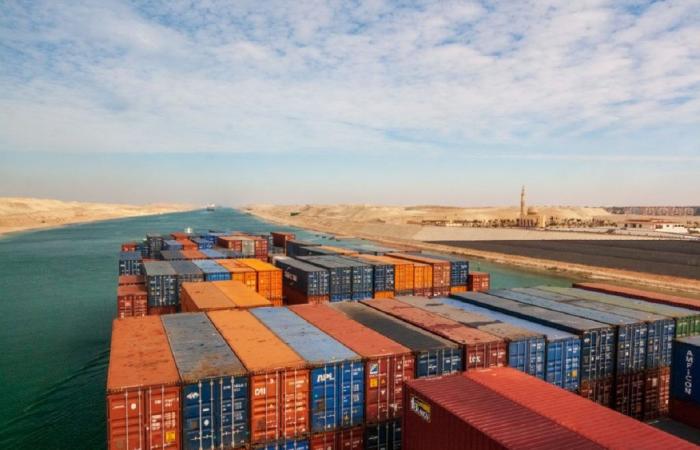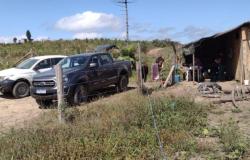
The crisis in the Suez Canal, caused by orchestrated Houthi attacks on commercial ships near Yemen, has affected global trade across all supply chains, being responsible for delays in deliveries and increase in product prices for consumers.
Responsible for around 15% of everything that circulates in world trade, traffic along the route fell by 50% in the first months of this year, according to the most recent data from the IMF (International Monetary Fund). The problem also impact on the insurance sector.
The Joint War Committee (JWC), a union that brings together the main insurers, reinsurers and underwriters in London, recently expanded the “high risk zone” in the Red Sea, pressuring insurers to charge higher premiums (amounts paid by customers), a attempt to sustain positive claims rates.
Masterclass
The Power of Turbo Fixed Income
Learn in practice how to increase your wealth with profitability, simplicity and security (and even win 2 InfoMoney gifts)
“The consequence is delays in the delivery of transported goods due to the cancellation of trips and the use of longer alternative routes, which increase the cost of freight charged by maritime carriers”, says lawyer Camila Prado, partner in the insurance area, reinsurance, private pension and supplementary health from the Demarest office.
It is estimated that sea freight will be around 100% more expensive due to the crisis. An increase in insurance prices was also observed. Report from reinsurance broker Guy Carpenter shows increase in risk premiums for the Red Sea. According to the survey, the value of insurance would have jumped from a nominal 0.07%, in October 2023, before the start of the conflict in the region, to something between 0.5% and 0.7% at the end of December 2023 .
“In view of the increase in risks, there may be a retraction in the insurance market, with news of impacts on underwriting due to the cancellation or increase in war coverage premiums for vessels transporting goods through the Suez Canal area”, says Camila. “In this scenario, Brazilian companies that have their cargo transported through that channel may also be impacted due to the increase in the cost of transportation, which is affected by the increase in insurance prices and, also, by the increase in the cost of fuels, imported by the same route”, adds the lawyer.
Economist Bruno Corano highlights that, for the first time in history, two important channels in the world are going through trouble at the same time. “One for geopolitical issues, which is the Suez Canal, and the other for climate issues, which is the Panama Canal,” he says.
“We have already noticed some factories lacking supplies and inputs to continue normal production. This is especially disrupting the Asia/United States axis, where the Suez Canal is more decisive.”
Change of route
In the Suez Canal, says Corano, 40% of the route has been diverted due to at least 50 attacks on vessels, with three deaths and one sinking.
As a result, the cost of international sea freight doubled in January due to operating restrictions caused by attacks near Yemen.
The main operators in the maritime industry have suspended or reduced the transit of their ships through the Suez Canal. “There is news that certain companies are increasing the number of vessels to meet demands and meet delivery deadlines, by relocating ships from other routes, which could also affect shippers whose cargo is not necessarily transported through the Suez Canal ”, says Camila Prado, from the Demarest office.
Guy Carpenter’s report highlights that the new routes around the Cape of Good Hope, in South Africa, add 10 to 15 days to the total trip, further increasing the costs of insurance, fuel and, consequently, the final value of the trip. merchandise. “Going via the Cape of Good Hope increases operational costs, as it can increase travel time from 19 days to around 30″, highlights Wagner Spindola, partner at Globus Seguros.
“According to a survey by Datamar [consultoria de inteligência de dados de comércio marítimo]Brazil must directly suffer the impacts of the Suez Crisis, since at least 9% of all Brazilian container cargo passes through there”, says Spindola.
“It is necessary to highlight that shipping companies, by diverting their routes and not using the Red Sea, are managing their risks, as they avoid damage to their ships and transported goods”, highlights James Theodoro, president and founder of Korsa Risks and Insurance. “On the one hand, this is obviously a good thing. On the other hand, there is an increase in the cost of freight in general, especially sea and air freight, and a longer delivery time for goods,” he says.
According to an analysis by reinsurance broker Guy Carpenter, one of Marsh McLennan’s businesses, despite the growing risk of a prolonged war, it is estimated that the impact of the attacks on insurance claims will be limited.
Cargo, hull and fire risks in marine insurance have traditionally been the largest contributors to claims, with wars accounting for only a small percentage. A report published by the Nordic Association of Maritime Insurers points to 2023 as the first year, since 2019, in which an insurance claim exceeded US$30 million.
Historic drought in Panama
The Panama Canal, an important commercial route for large ships in Central America, is facing the problem of drought, which has reached historic levels and has been affecting the crossing of vessels due to the lack of adequate water in the canal.
“The fact is that it is very expensive to go through the Panama Canal and there is a long waiting list at the moment: the average has been 50 ships waiting. And the price charged is eight times more expensive than normal, on average. It largely depends on the customer and the transport company”, he concludes.
Receive in your email first thing in the morning the news that will affect the markets, your investments and your pocket during the day
Tags: Crisis Suez Canal insurance prices expensive understand impact pocket
--




